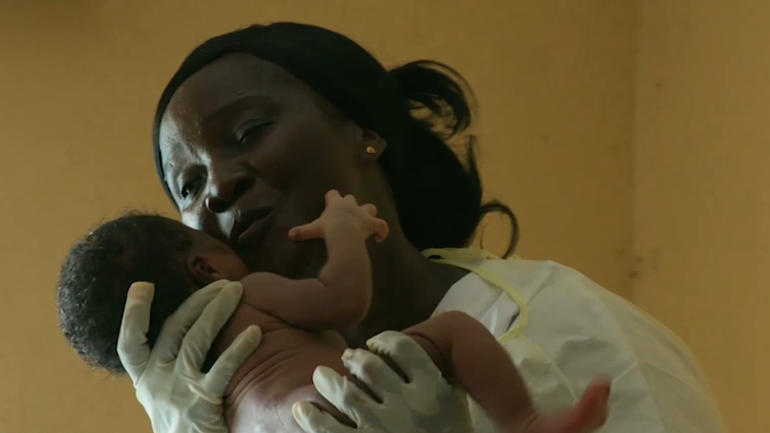From delivering urgent food aid and medicines, to offering: shelter, counseling and support, unsung heroes at the frontlines of conflict and disasters help the most vulnerable from Syria to South Sudan. And on World Humanitarian Day, the United Nations is paying tribute to the women among them.
CGTN’s Liling Tan has the story.
Aid deliveries must be made, come rain or shine, and it’s aid worker Kristina De Armas’ job to make sure things go as smoothly as they can, here in war-ravaged South Sudan.
“I am currently the logistics and warehouse officer in Juba, and I also manage the warehouses throughout the country. We manage cargo that’s being shipped to the field and to other of our sub offices,” said Kristina De Armas, Logistics & Warehouse Officer, International Organization for Migration, Juba.
South Sudan is one of the most dangerous places in the world to deliver aid, where more than a hundred humanitarian workers have been killed since the civil war began in 2013, and where personal safety and security are major challenges for women aid workers.
“I think as females, we are sometimes targeted more because of the idea that we are weaker, versus our male counterparts. Women, it is known that they are usually more susceptible to sexual assault and harassment, and this is something that I have seen in the field and it is being addressed,” said De Armas.
Kristina is among hundreds of thousands of women that the U.N. is honoring this year for World Humanitarian Day, and one of 24 women aid workers profiled by the UN humanitarian agency.
Among them is Alice Sumo, a midwife in Liberia who has more than 800 girls named after her and Mai Nan Po of Myanmar who distributes food to those in dire need.
The U.N. estimates there are about 250 thousand women in the humanitarian workforce. That’s 40 percent, so two out of five aid workers are women. But this is a field where thousands of aid workers have been killed, injured, assaulted or kidnapped in the past 15 years, so why are more women taking on humanitarian work
Because there is a need for it, and a growing pool of women willing and eager to help.
“There is evidence that, on one hand, humanitarian response is more effective and inclusive if women are part or involved in the decision making and also in leadership roles. And on the other hand, they are facing different challenges from their male colleagues. There’s evidence that they are more susceptible to assault, sexual harassment, sexual violence, and is critical that any effective humanitarian system includes women in decision-making and leadership levels and recognizes the unique contributions women make. (overlay shots) They have unique access to women and girls in some situations. They provide unique services, vital information to tens of thousands of women and girls that otherwise would not be reached,” said Ursula Mueller, U.N. Assistant Secretary General for Humanitarian Affairs.
And by highlighting their crucial contribution, the U.N. is giving these unsung heroes a voice that resonates around the world.
 CGTN America
CGTN America

